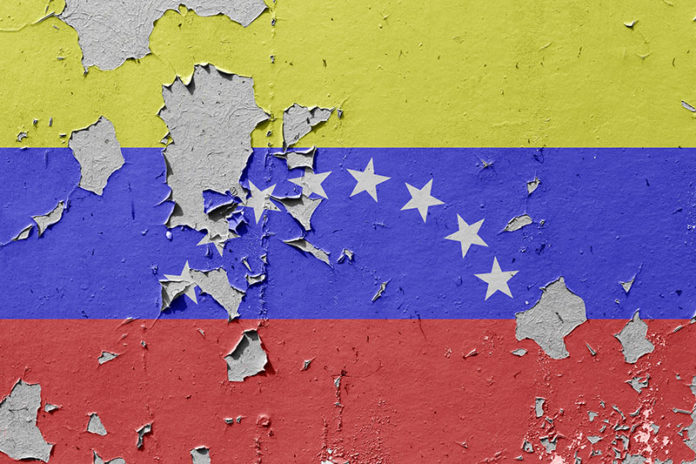“Who would be free themselves must strike the blow…
“By their right arms the conquest must be wrought.”
So wrote Lord Byron of Greece’s war of independence against the Turks, though the famed British poet would ignore his own counsel and die just days after arriving in Greece to join the struggle.
Yet Byron’s advice is the wise course for the United States, and for the people of Venezuela who seek to free their country of the grip of the incompetent and dictatorial regime of Nicolas Maduro.
Let the Venezuelans decide their own destiny, as did we.
As of today, Caracas seems to be in something of a standoff.
Opposition leader Juan Guaido, recognized by the U.S. and 50 other nations as president, has failed to persuade the army to abandon Maduro.
Yet he can still muster larger crowds in the streets of Caracas to demand the ouster of Maduro than Maduro can call out to stand by his regime.
Tuesday and Wednesday, Guaido announced that the regime’s final hour was at hand. But by midweek, the army’s leaders, including the minister of defense, still stood with Maduro.
Guaido’s opportunity seems to have passed by, at least for the moment. Maduro remains in power, though his generals, weighing the odds, have apparently been negotiating in secret with Guaido.
The Trump administration has backed Guaido, only to see him fail twice now at taking power.
The White House backed the plan in February to breach Venezuela’s borders with truckloads of food and medicine, counting on the army not to use force to block the trucks.
Vice President Mike Pence traveled to the border.
But Guaido and the Americans miscalculated. The army stood by Maduro. The trucks were kept out.
This week, when Guaido called out the crowds again to bring the strongman down, the White House went all in. President Donald Trump, Pence, Secretary of State Mike Pompeo and John Bolton all tweeted support for the uprising.
But by Thursday, it was again clear that no matter what Washington had been told and anticipated, the army remained loyal to Maduro.
Frustrated, exasperated, appearing at once bellicose and impotent, Washington has now begun to bluster about military intervention.
“All options are on the table,” says Joint Chiefs of Staff Chairman Gen. Joseph Dunford. Presumably that includes the 82nd Airborne.
“While a peaceful solution is desirable, military action is possible,” said Pompeo. “If that’s what required, that’s what the United States will do.”
“All options are open,” says Bolton. “We want a peaceful transfer of power. But we are not going to see Guaido mistreated by this regime.”
Clearly, Juan Guaido is our man in Caracas.
Bolton also had strong words for Vladimir Putin: “(T)his is our hemisphere. It’s not where the Russians should be interfering. This was a mistake on their part.”
“The brutal repression of the Venezuelan people must end, and it must end soon,” said Trump. “People are starving. They have no food; they have no water. And this was once one of the wealthiest countries in the world.”
Yet Trump is reportedly reluctant to intervene. Let us hope that his anti-interventionist impulses guide his decisions. Venezuela’s future is not ours to decide.
This civil conflict is not our war. We have not been attacked. Not only is there no justification for U.S. military intervention, but also any arrival of U.S. troops on Venezuelan soil could turn into yet another 21st-century strategic debacle.
There could be again Americans killing and dying in a country where no vital interest was imperiled, no matter how obnoxious the regime.
There is no Tiananmen Square slaughter, no massive human rights violations going on in Venezuela to justify military intervention. Indeed, there appears to be a conscious effort on the part of Maduro to minimize casualties and bloodshed, and the consequences they could bring.
Troops are not firing indiscriminately on protestors, though rock-throwers in the streets are provoking the soldiers. Planeloads of Russian or Cuban troops are not pouring into the country.
U.S. intervention in a nation of 30 million people, with an army of scores of thousands of troops, would enable Maduro to cast himself in the role of martyr of Yankee imperialism.
Finally, time is on our side, not Maduro’s.
The Venezuelan economy, one of the richest in the hemisphere owing to the world’s largest oil resources, is now in shambles. Some 3 million people, 1 in every 10 Venezuelans, have fled the disaster that Maduro and his mentor Hugo Chavez created.
The currency is sinking to Weimar levels. Oil exports are falling. Shortages of food and medicine are spreading. Power blackouts have been reported. It is difficult to foresee any turnaround the Maduro regime can execute to revive the economy or prevent the continued exodus of its people. Most of the nations of Latin America are with us and against Maduro.
Venezuela’s situation is not sustainable. Let the fate of the Marxist Socialist regime of Nicolas Maduro be decided by the people of Venezuela.



























